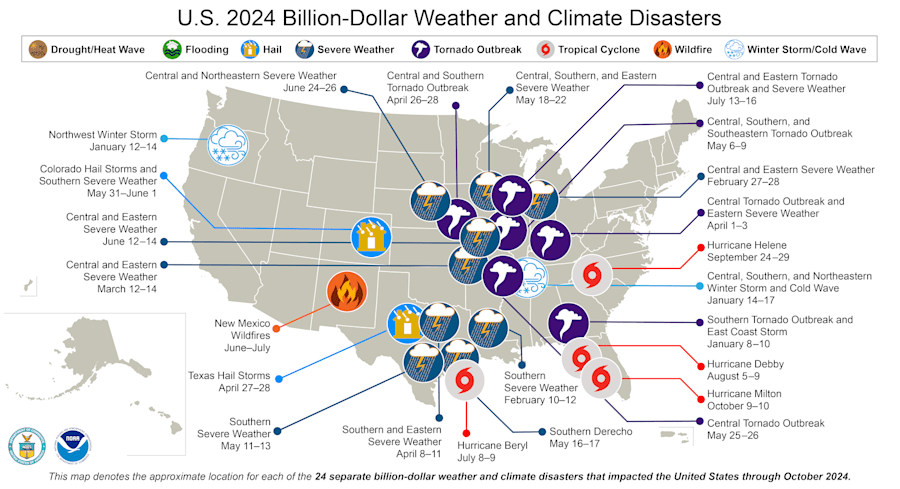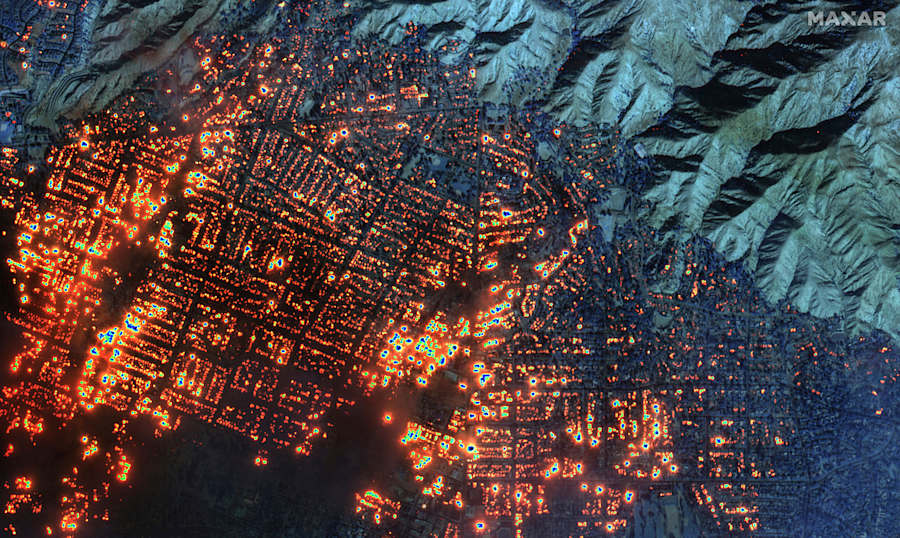JACKSONVILLE, FLA – The World Meteorological Organization (WMO) will release global temperature data later this month, which is expected to confirm 2024 as the hottest year on record. This caps a decade of unprecedented heat driven by rising greenhouse gas levels.
UN Secretary-General António Guterres stated that the last 10 years, including 2024, were the hottest on record, describing it as a “decade of deadly heat.”
In 2024, hurricanes caused over $500 billion in damages in the U.S., equal to 2% of GDP, according to AccuWeather.
NOAA reports 24 billion-dollar weather disasters this year, including 17 severe storms, four tropical cyclones, a wildfire, and two winter storms. These events killed 418 people and caused significant economic losses.
The five-year annual average for such disasters is now 20.4, compared to 8.5 from 1980 to 2023.

In Los Angeles, Santa Ana winds reached record 100 mph gusts this week, igniting fires in a region receiving less than six inches of rainfall this year.
The Palisades Fire in LA was one of the most destructive in 2024, burning over 20,000 acres and forcing the evacuation of thousands of residents.
Unprecedented dry conditions and wind speeds fueled the rapid spread of the fire, overwhelming firefighting resources.

A WMO report highlights that climate change intensified 26 of 29 major weather events studied this year, which killed more than 3,700 people and displaced millions worldwide.
These findings underscore the growing impact of global warming on lives and economies.





